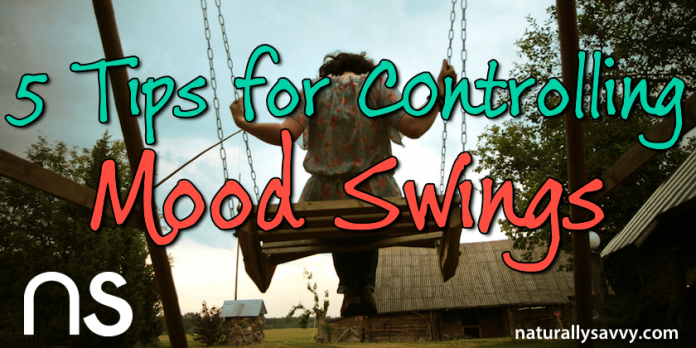
It’s a beautiful day. The sun is shining, you’re headed to the beach, and you don’t have to work all weekend. The world is your oyster and nothing could bring you down. And then, out of the blue, you win the lottery of negative emotions. Hopelessness clouds your sky like an unexpected torrential rain storm. Mood swings are painful and they can come out of nowhere, as if their only goal is to ruin your day.
The main cause of mood swings are hormones and neurotransmitters. When a mood swing comes on, your hormones go out of balance and the neurochemicals in your brain change production. Your brain chemistry impacts the way you think. That’s why even when absolutely everything is going your way, a mood swing can still take over. Mood swings make you prone to rapid negative thinking, fear, and anxiety. They can make you feel and think things that are disproportionate to a situation. While there is no easy cure, understanding mood swings and altering your behavior a bit can shorten and even cease many a mood swing. Here’s how.
1. Fake a positive emotion
It’s not that you’re pretending to feel better, but rather, playing a game where you are acting out a play in the mood you want to be in. In other words, fake it until you make it.
2. Leave the situation
Avoid immediately reacting to a negative emotion. Mood swings are made worse if we allow them to build on themselves because we react to feeling bad. Go to a movie, go shopping, whatever, just take yourself out of a situation where you’re overthinking everything.
3. Don’t place blame
Often times when we feel a mood swing coming on we have trouble getting along with everyone around us. You may find yourself being judgmental and critical of others because negativity rules the day. But your moods are in your brain, they’re not caused by others. Rather, they change your reaction to those around you in a negative fashion. Resist the urge to blame others when you’re feeling crappy because confrontation just makes the situation worse.
4. Cut out refined sugar
A diet high in refined sugars can contribute to anxious feelings and mood swings. Also, eliminate tea, coffee, and alcohol, which can contribute to changes in mood on their own.
5. Eat foods that help liver function
Increasing liver function is incredibly important for balancing mood swings because the liver helps balance estrogen levels which contribute to mood swings. Foods that increase liver function include broccoli, carrots, spinach, pumpkin, Brussels sprouts, cauliflower, and sweet potatoes.
Image via Petras Gagilas










